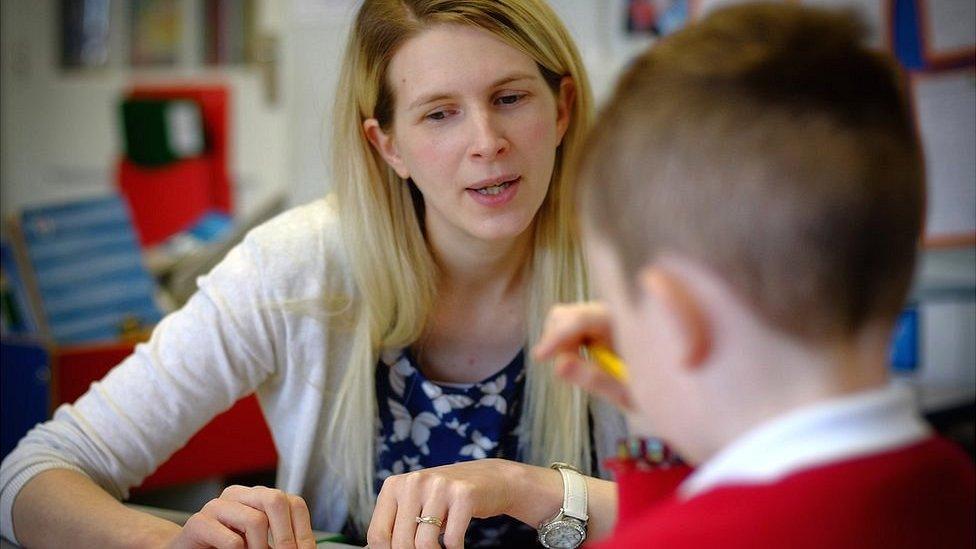More Gypsy and traveller pupils go to school in Wales
- Published
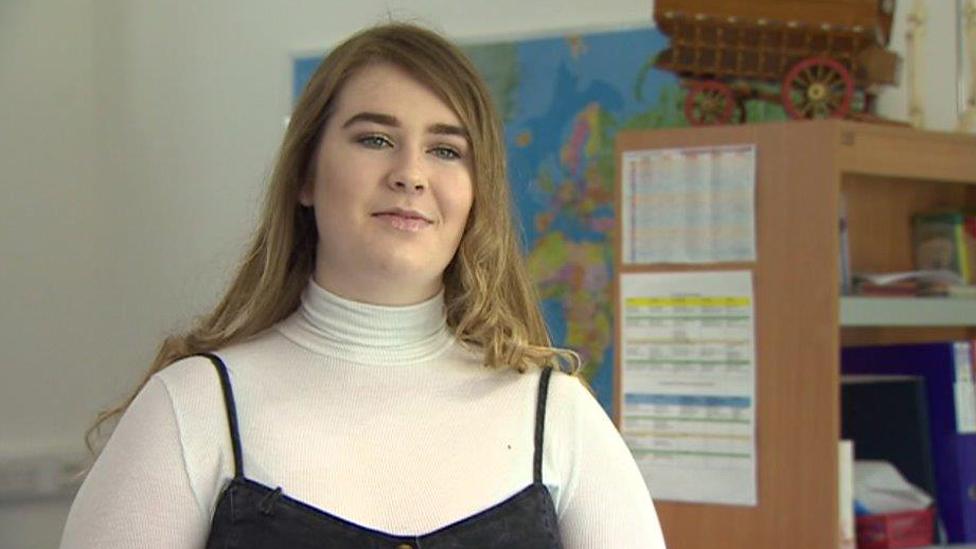
Ellie Murphy is Gypsy Traveller and a member of the Welsh Youth Parliament
More children from Gypsy, Roma and traveller families in Wales are going to school, say inspectors.
But still only half of pupils from these communities go into secondary education after primary school.
Ellie Murphy, 15, a Gypsy Traveller, said she felt "self-conscious" in mainstream school: "Everyone thinks Gypsies are tramps, basically."
Estyn said the education experience for pupils and families needed to improve and they needed the right support.
Although GCSE results have also improved, Gypsy, Roma and traveller (GRT) pupils are still the lowest achievers.
The education standards watchdog has published its first in-depth report on the Gypsy, Roma and traveller communities in eight years.

It found since 2011, numbers attending have increased by almost 35% in secondary schools and by 41% in primary schools.
But still only around a half of pupils continue into secondary school, while attendance of those who went to school was "too low" and well below average.
Ellie has been at the Priory Project in Pembroke - a learning centre for secondary school-age pupils from Gypsy and traveller communities - for more than two years.
She said she felt lonely and left out when she was at a mainstream school and believes schools could do more.
"Sometimes it would be fine - but I felt a bit self-conscious," she said. "The impression I was getting from them was that I wasn't the same as them.
"My parents thought that if I spent a lot of time with the other pupils they might bully me because I'm from a different community."

Ellie hopes to inspire others in her community
Ellie, who is a member of the Welsh Youth Parliament, said Gypsy Travellers tended to be stricter than other parents and there are different cultural expectations.
Part of her tradition means she is expected to do her share of chores after school at home, including cooking, cleaning and babysitting.
Boys have tended to leave education to work with their fathers - historically in building, scrap metal and fruit picking.
The teenager, who has thought about going back to mainstream school and already goes to college once a week, added: "It's really important other Gypsy Travellers see what I'm doing and get inspired by it - they'll see it's important to do maths and English or try to go to college."
Estyn said families were concerned:
Their children would be bullied in secondary school - it wants anti-bullying policies to take account of their specific needs
Their culture would be diluted by contact with other children
There was little in the school curriculum to prepare their children for work or to keep a home.
It found schools did not promote GRT culture well enough outside assemblies, while Welsh Government guidance on the issue was 10 years old and out of date.
Transport was also an issue.
But most schools provided homework clubs and also access to the internet, which had helped improve the confidence of GRT pupils with IT.
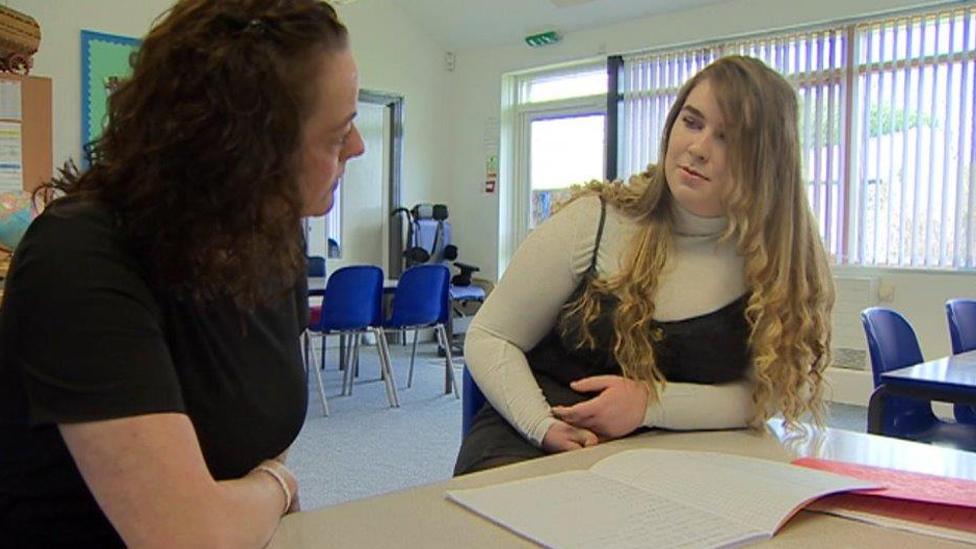
Ellie, with her teacher, says schools could do more to help children from her community
Those involved in education said the difference from mainstream schools was in supporting the families - which helped develop trust.
"Twenty years ago, parents didn't send their children to school for different reasons - they didn't agree with the way they would be educated and education wasn't valued by the parents," said Claire Arnold, the teacher in charge of the Priory Project.
"They'd had bad experiences themselves and didn't want to put their children through that and they could work their lives without being educated."

In performance indicators - at key stages 3 and 4 - Gypsy/Gypsy Roma pupils have improved but are still the lowest performing ethnic group in Wales.
Cardiff council was however praised for the work of its traveller education service, which has helped the proportion of pupils going to secondary schools rise from 50% in 2014 to 88% in 2017. It offers visits to pupils and parents to the school and helps with the admissions process.
Meilyr Rowlands, Estyn's chief inspector, said: "Children from Gypsy, Roma and traveller communities are among our most vulnerable learners. They need the right support at school to help make the most of their talents, interest and abilities."
- Published17 March 2019
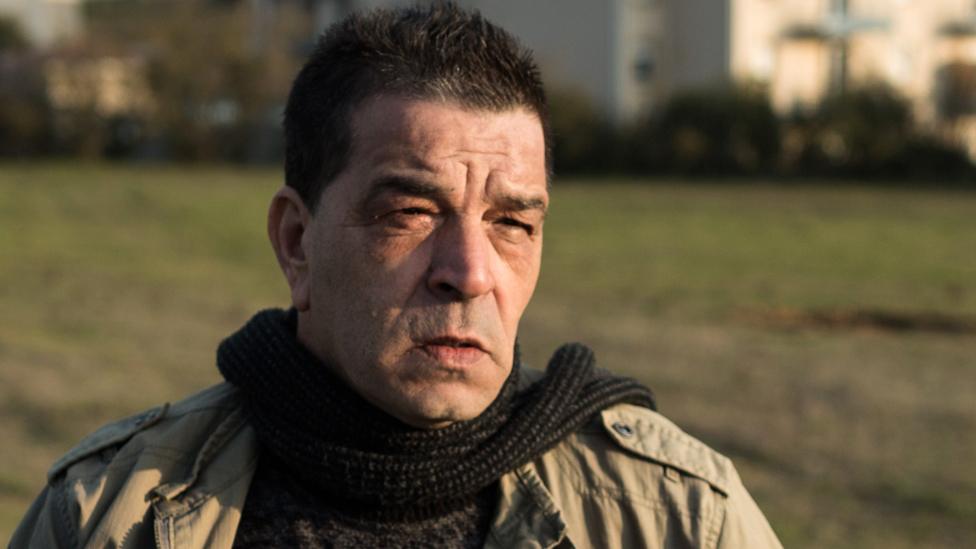
- Published12 September 2018
- Published21 March 2019

- Published3 July 2018
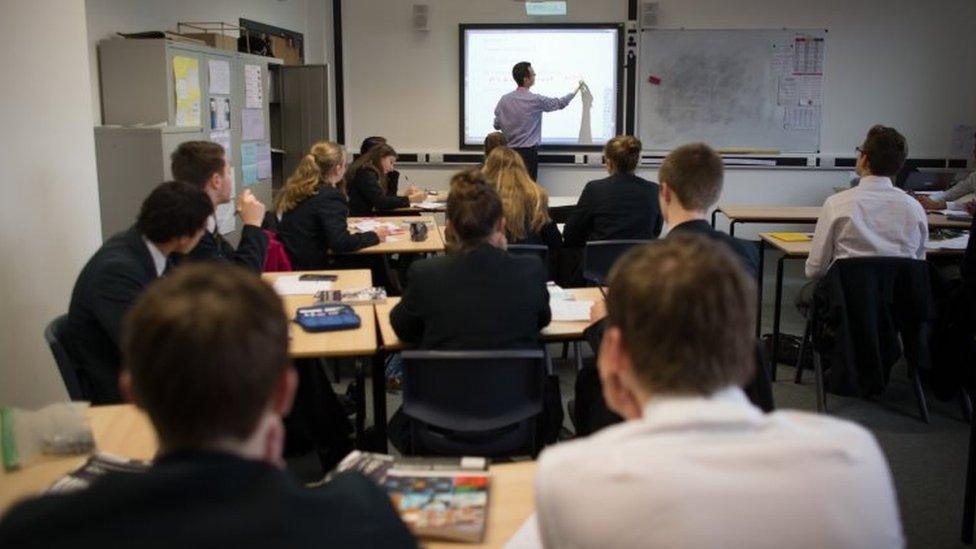
- Published3 September 2017

- Published15 May 2017
